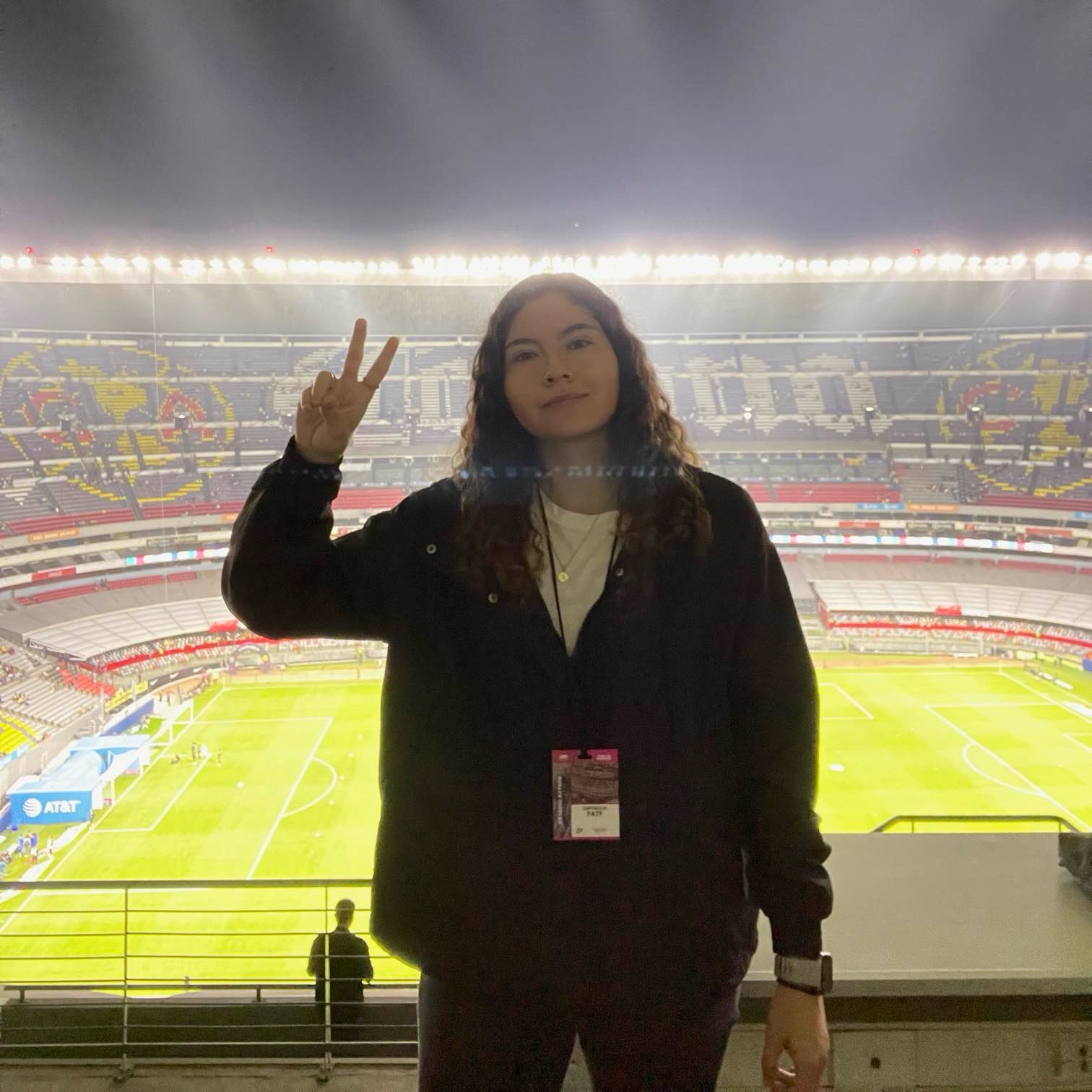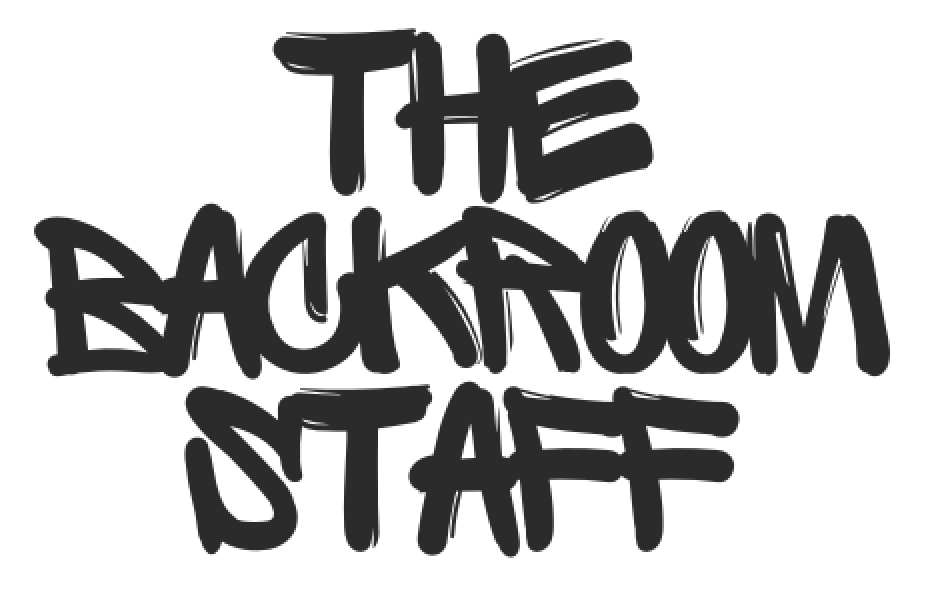Sports journalism, like all media, is changing. With more platforms and voices than ever, the opportunities are huge. At the same time, breaking in is different - you need to be versatile, from longform writing to TikTok, and often build your own audience. For many young journalists, this means working for free to establish a profile and portfolio.
Still, it remains one of the coolest jobs. Watching sports and sharing your opinion - as a job? Amazing.
In this interview, football journalist Adriana Bernal shares her passion for women’s football, her experience working across different media formats, and what it takes to make it in today’s industry.
The interview has been condensed and lightly edited for grammar and clarity.
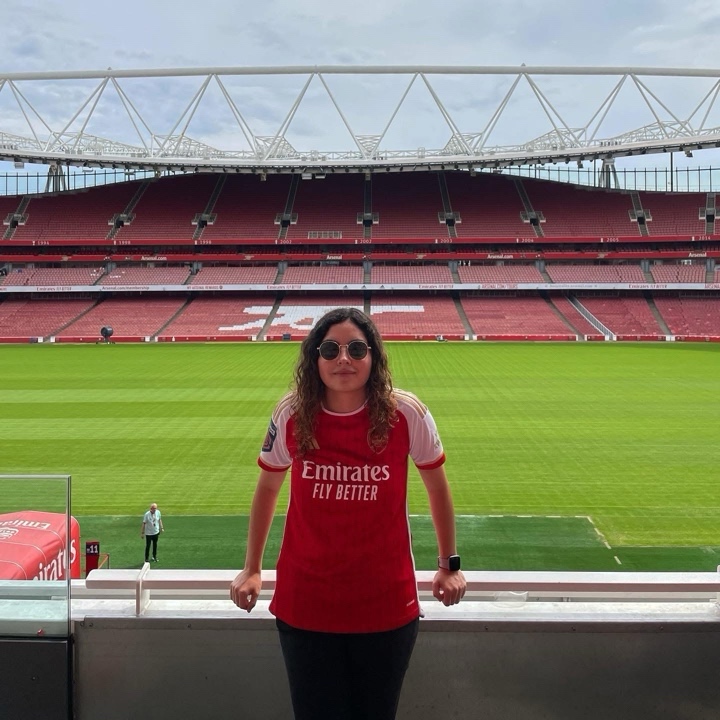
[ Background in football ]
I grew up in Mexico City and it was my dad who got me into sports. He got me started playing basketball, going to skate, running, cycling - and then, I discovered football! My dad wasn’t really a huge fan of football but we were watching a game together and somehow I got so invested. Even though we were watching a men’s game, I wanted to play, to be one of the players.
I was maybe 7 or 8 years old and started looking for an opportunity to play football. I found a ‘mixed’ team with girls and boys - but I was the only girl on the team. I played for years on this team.
I still played other sports but they never gave me the same feeling as football. Football taught me a lot in my life - things like teamwork, leadership, organization and overcoming problems with teammates (I had this a lot as the only girl!).
I had stopped playing regularly a few years before university but there, I found a women’s team. I tried out and made the team and was playing again - but then COVID hit. I had to decide if I wanted to continue studying communications or keep playing. I received offers from schools in the US to study and play there. Of course, I always wanted to be a professional player and represent Mexico, or play in the Mexican women’s league that was growing a lot. But at the same time, I knew I was already behind some others and I decided if I can’t be a professional player, I want to be part of football in another role. So I decided to focus on studying communications and journalism.
I focused from the start on women’s sports and women’s football because it’s something that has given me a lot in my life and given me a lot of joy. I want to be part of this and keep helping the sport to grow and be more visible.
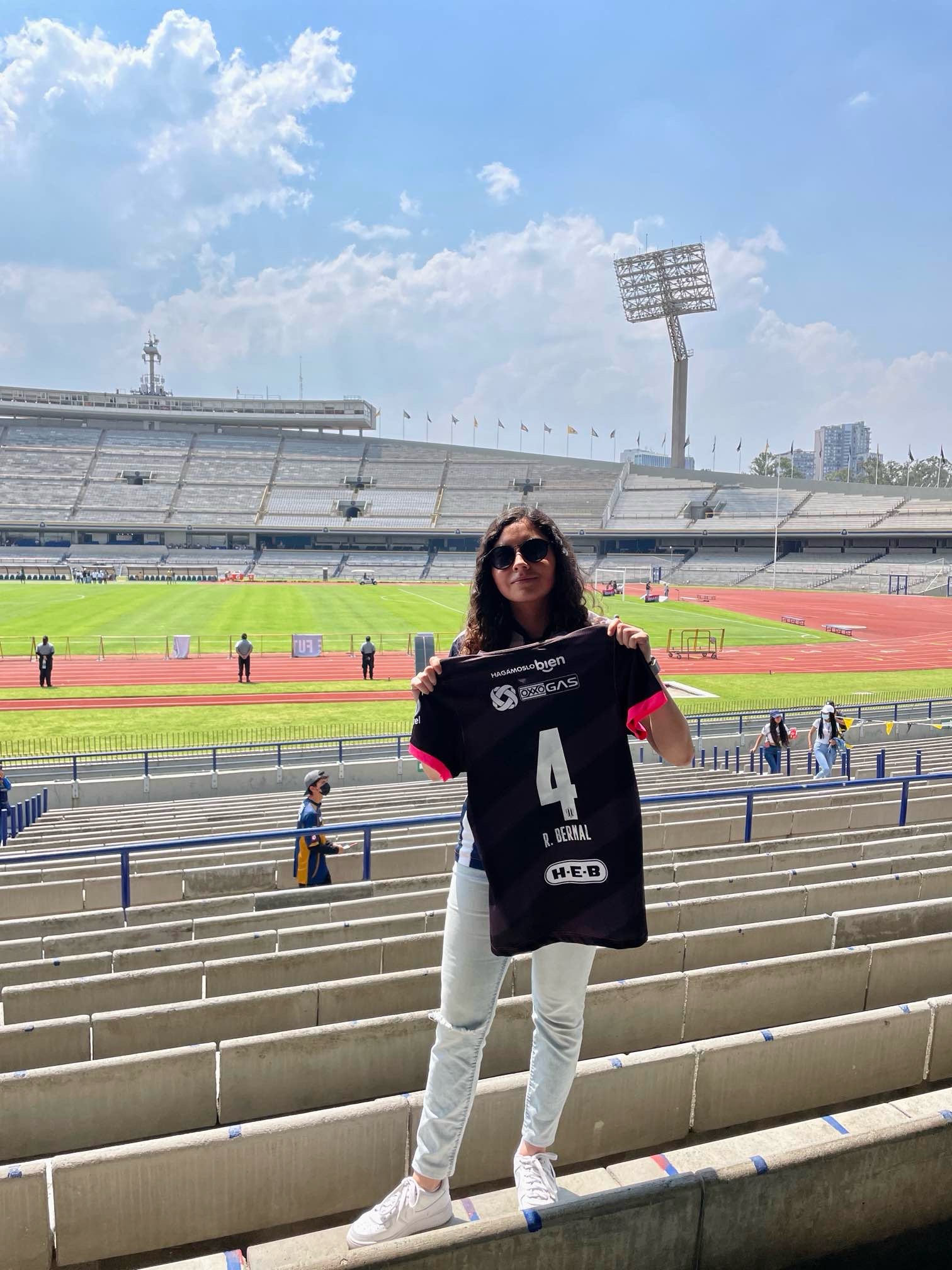
[ I think journalism is different to more ‘traditional’ jobs in that aside from formal education, you often have to do a lot of work on your own to build a portfolio and an audience. What do the first steps in a journalism career look like? ]
Yeah, it's really different from other jobs. I see it with my friends (in other jobs), maybe they have a special task to do, and when it's done, they get another task. But I think journalism is really different because you have to go and look for the story. There's always something new, and you always have to be informed and follow the news from around the world.
As a little kid, I remember watching the anchors on sports or entertainment programs and wanting to be like them. I discovered most of them studied journalism and communications so I went for it. In journalism, I’ve found out, you always have to be looking for something new - you have to be a person who is actively involved with what’s happening in the world. Even though my focus is on sports - sports involve a lot of things; economic, social, political so I need to be informed.
You have to be passionate about telling stories. I think this is really important - I think if you don’t have this passion, it’s really complicated to do something in journalism because the objective of journalism is to tell stories in a way that people can connect with and understand.
"There's always something new, and you always have to be informed and follow the news from around the world"
[ You work across various mediums from writing to livestreams, how does your work change as the format changes? ]
It's really different, because in every format you have a different audience. You have to be conscious of who you are talking to, because not everyone likes or wants the same thing.
For example, I do a live broadcast with friends on YouTube and that’s a really friendly type of audience. We are also interacting with the audience live through the comments section. Here, you can be less structured than in your writing, where it’s important that people who read your article don’t need to ask for clarification or more information.
You also might have to change slightly depending on the media company you’re working for/representing while keeping your own style so people will like and follow your work across different formats.
[ Do you try to ‘specialize’ in one format or focus on being well rounded across each format? ]
I think you really have to start doing the basics, especially writing. You have to know how to write to be an anchor, or to make videos on YouTube or TikTok. For whatever you want to do, you have to know how to write a good story.
I think you have to know a little bit of everything but writing is the first step. So, for me, even though I always like to be in front of the camera, I literally just started writing a lot of articles. This is where you learn the basics of storytelling and this helps you with everything else.
[ You’ve also had to decide whether to focus on a specific topic vs. all different sports? ]
Yeah, definitely. I mean, I like all the sports, and I can do different sports but my specialty, my main focus, is women’s sports and specifically women’s football.
I know how hard it was when women’s football wasn’t covered by the media at all. Now, women’s football is starting to grow a lot and being able to give space to topics like the women’s league can really help the sport continue to grow.
Of course, all women’s sports need to grow and deserve more attention but football is the sport I played since I was a little kid - the sport I love, the sport I live for. So this is why I’m really focused on women’s football.
[ I always remember when Sonia Bompastor was appointed as Chelsea coach, her Wikipedia page was so sparse, is access to basic information like this an added challenge in women’s football reporting? ]
I think at this point we have a little bit more information than we used to have, because again, there are more people, more media that are covering women's sports and producing statistics, match reports, interviews and things like that. But it’s still not the same as men’s football.
It’s always a huge topic to compare women’s and men’s football but on this, there’s been a gap in attention over years and years. So, women’s football is still behind in a lot of things.
Now, we still have some problems when it comes to access to players and stadiums but this is starting to get easier in the US and in Europe. In Mexico, we’re still growing in that area. I’ve heard stories of teams not providing the right information or making it difficult for the press to get access to stadiums to cover the games. Some teams do it well and - as a result - have the most and best coverage.
[ What is it like looking for jobs as a freelance journalist? ]
I started working as a freelancer while I was still studying at university. Even if some of the jobs didn’t pay, it was still important to be able to create a name and something for my resume. It was also valuable to have the opportunity to explore, try new things out and see what I’m actually good at and what I like doing.
Now, I’ve graduated and am not just looking for freelance jobs. Of course, it’s no problem and I’m still excited about new freelance opportunities but I’m really looking to become part of a bigger media company like ESPN or Fox Sports.
It’s really hard to get into these jobs because there are a lot of people who study communications and journalism and a lot of people who like sports! There are not many new positions so you have to be really patient if you want to stop being a freelancer!
So, in the meantime, if I can get work that pays as a freelancer and I am able to cover women’s football, I’m happy to do it.
There are also other interesting options like working at a club in the PR team, or as a videographer or even community manager. Maybe it’s a different way and a different position but it’s always an option for me as well.
[ How important is networking and working with other journalists as a freelancer? ]
It's really important as a journalist to have sources. It’s often another journalist but could be players or people working in clubs as well. You have to be really smart and open minded to actually go and talk to everyone. At first, I was shy or embarrassed to talk to people if I might be ‘rejected’ but I learned, in this job you have to!
It’s not just about future jobs but also creating friendships in the sport. For example, one of my YouTube shows started by meeting someone. Even though the job we were working on didn’t work out, we met and became friends. He invited me onto his live show to talk about the team I support and give some analysis for the upcoming week’s fixtures. And now I’m here and really proud to be part of this project.
You need to create this network and make friends. It’s really cool who you can meet and connect with. So again, Rule #1: Don’t be ashamed to go and ask for things!
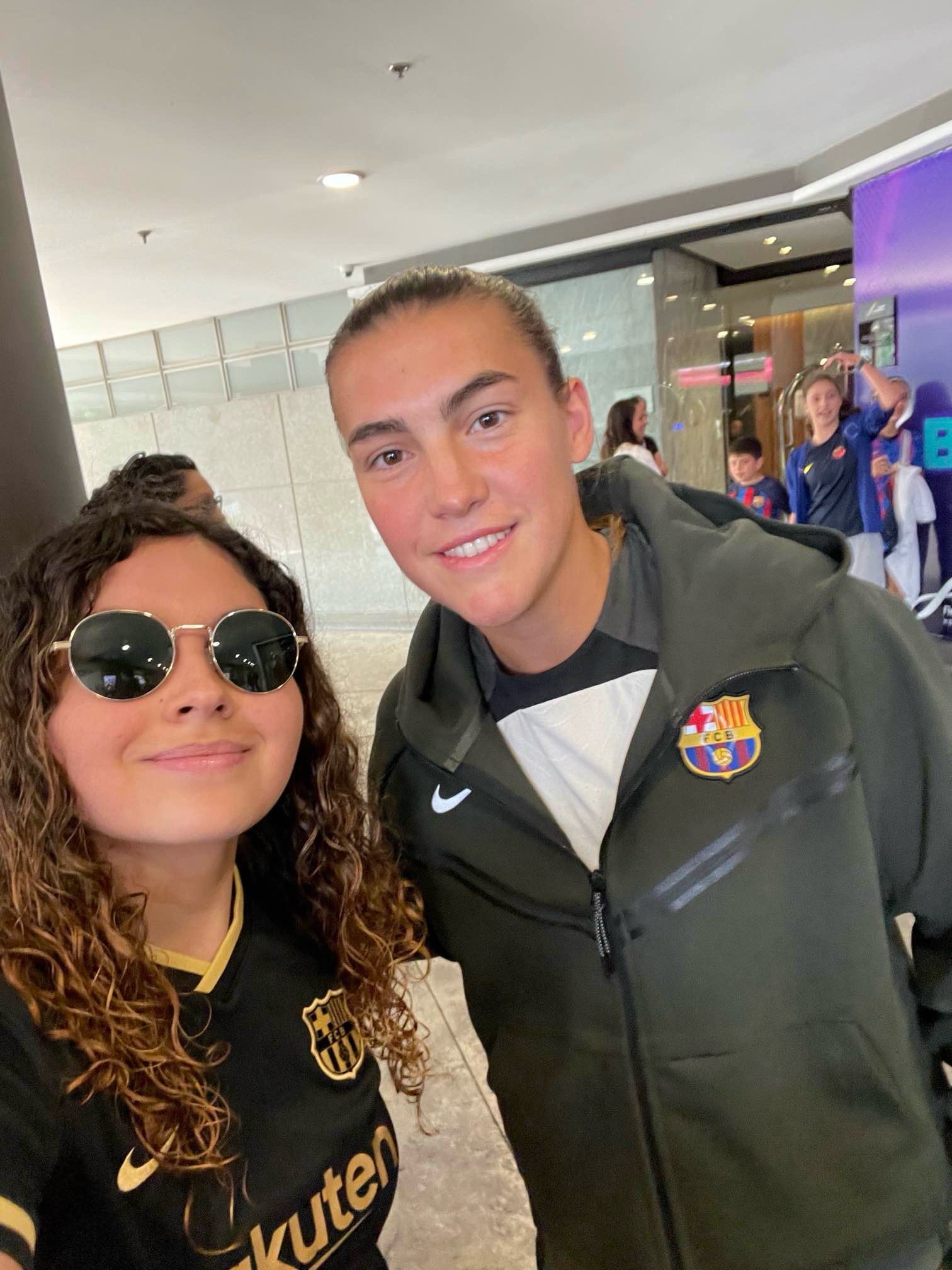
[ Are you also trying to connect with people outside Mexico/Mexican football? ]
Definitely, especially on LinkedIn and TikTok you can find and follow a lot of people doing journalism and their own creative content. In Spain, there’s a TikTok-er I really like - Cristina Medina - she’s already working regularly in Spanish radio and ‘traditional’ media but also makes really good women’s football content.
I’m always trying to connect with different people to talk or try to do something together. You just have to go for it and try to build your network.
[ Do you feel a sort of ‘pressure’ to grow your audience/following on social media? ]
Totally. The pressure is always there because brands are looking for people with the highest numbers on Twitter or TikTok or wherever. You can see a lot of people who grew really big on social media and now have great opportunities.
One of my goals in 2025, for example, is to start doing TikToks myself. Besides the pressure to grow your following, there’s also a pressure to do something that is good quality.
As I said before, each platform is so different and in this case, with TikTok, there’s a fine line between being professional but also funny in a way that gives you the potential to reach more people. Probably you have to actually go into the ‘viral’ side of TikTok and participate in some of the trends without losing all of the professional side.
"Besides the pressure to grow your following, there’s also a pressure to do something that is good quality"
[ What are some of the cool things you’ve gotten to experience as part of your work? ]
As a kid, I never thought I could work in sports and that my work would actually be going to games! So for me, that was mind blowing and you don’t really see that part as a job.
I had the opportunity to follow the first leg of the Liga MX Femenil Final in 2022 in Estadio Azteca between Tigres and América. That was one of the most amazing things I’ve ever seen! There were over 50,000 people and the environment that I experienced gives me chills just thinking about it.
I’ve also been able to interview players and even be part of a boot launch for the Nike Air Zoom. There, I spoke with Fernanda Piña, an ex-professional player who has become my friend and colleague. She’s building a mixed team that plays games for fun on the weekends and a company and now we talk and I’m part of that! It’s really interesting how sports can foster a new friendship.
